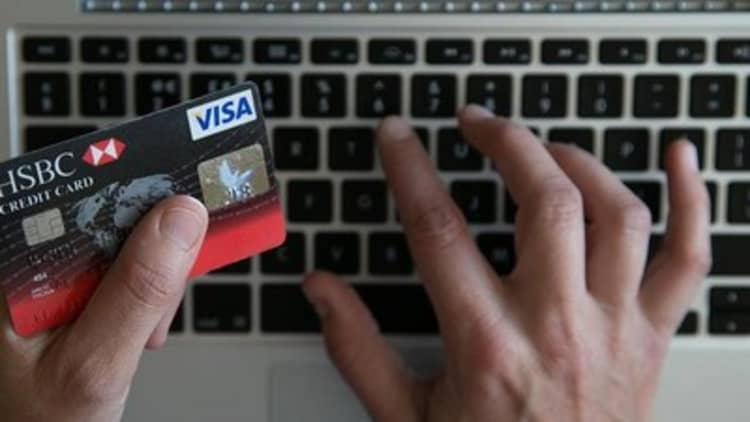
Almost everyone knows that things are bought and sold illegally online all the time, but most people don't know how the process works exactly.
Internet security expert Joseph Steinberg showed CNBC how anyone using a combination of bitcoin and specialized software can work through online marketplaces to sell just about anything.
Most property crimes are becoming "cyber" in one way or another, as a means for criminal networks to communicate, transfer funds or market illegal products and services, said Ken Westin, a senior analyst with cybersecurity firm Tripwire.
Read MoreTop 5 cybersecurity risks for 2015
Anonymity software such as Tor, used in combination with bitcoin, "is really helping to drive the growth of underground markets, so just like traditional businesses that have moved online to gain wider distribution, criminal entrepreneurs are following suit," Westin said.
Karen Reilly, development director for The Tor Project, said that Tor provides an important service by protecting people in countries that censor Internet connections and imprison Internet users for criticizing political leaders on social media sites.
"We work with ordinary citizens, reporters, law enforcement, victims of abuse, people with medical conditions, and other people who need to keep from being tracked online," she said.
Read MoreTurn your old iPhone into a home security system
"We do not condone drug dealers, terrorists and other criminals using Tor and find it disheartening if it is being used for anything other than what it was intended," Reilly said. "These users are a tiny fraction compared to the vast majority of people who just want to protect their privacy and freedom of expression."
Tor, which was once called The Onion Router, is used by some people for illegal transactions, but it was designed to protect information about democracy, religion and speech, said Mark Rasch, a former federal computer crimes prosecutor and the principal of information security firm Rasch Technology and Cyberlaw.
"I use it all the time when I want to be anonymous, or when I simply want to protect my privacy," he said.


